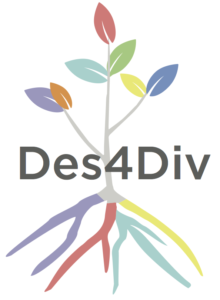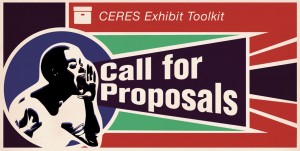Design for Diversity Project Releases Toolkit for Inclusive Information Systems
 The Design for Diversity project team is excited to announce the Design for Diversity Toolkit. The Design for Diversity initiative, supported by an IMLS National Forums Grant, is based in the Digital Scholarship Group at the Northeastern University Library. It focuses on the ways in which information systems embody and reinforce cultural norms, and asks how we might design systems that account for diverse cultural materials and ways of knowing. Both the Toolkit and the final grant report (forthcoming) provide samples of the different kinds of information, actions, and next steps that can help achieve more equitable information systems in libraries, museums, and archives.
The Design for Diversity project team is excited to announce the Design for Diversity Toolkit. The Design for Diversity initiative, supported by an IMLS National Forums Grant, is based in the Digital Scholarship Group at the Northeastern University Library. It focuses on the ways in which information systems embody and reinforce cultural norms, and asks how we might design systems that account for diverse cultural materials and ways of knowing. Both the Toolkit and the final grant report (forthcoming) provide samples of the different kinds of information, actions, and next steps that can help achieve more equitable information systems in libraries, museums, and archives.
The Toolkit itself is a prototype collection of learning resources and strategies, designed to explore methods for empowering cultural heritage practitioners advocating for more inclusive information systems. These resources, gathered between 2016 and 2018, can be used in a classroom, professional development workshop, or workplace task force or study group. The Toolkit serves as an example of how libraries, archives, and museums might educate and organize for change.
The grant team commissioned two forms of original writing for the Toolkit: case studies and study paths. (We are deeply grateful to our case study and study path authors.) Case studies are specific analyses of information and computer systems, using inclusivity as a frame. Study paths combine those case studies with readings and a learning activity to animate the Toolkit, giving learners a way to engage with the ideas; for example, through performing a detailed analysis of systems at their workplace. These case studies and study paths are brought together with a selection of impactful readings and videos focused on inclusive information systems and categorized into major topics.
The members of the grant team are eager to receive feedback, which may be provided via Twitter, email, or the Toolkit website. Over the coming weeks and months the team will be promoting the Toolkit on Twitter; follow @Des4Div for the latest updates.
The Design for Diversity Team, 2016-2019: Des Alaniz, Mattie Clear, Julia Flanders, Nancy Loi, Cara Marta Messina, Amanda Rust, Sarah Sweeney
This project is made possible in part by the Institute of Museum and Library Services [LG-73-16-0126-16]. The views, findings, conclusions or recommendations expressed here do not necessarily represent those of the Institute of Museum and Library Services.
